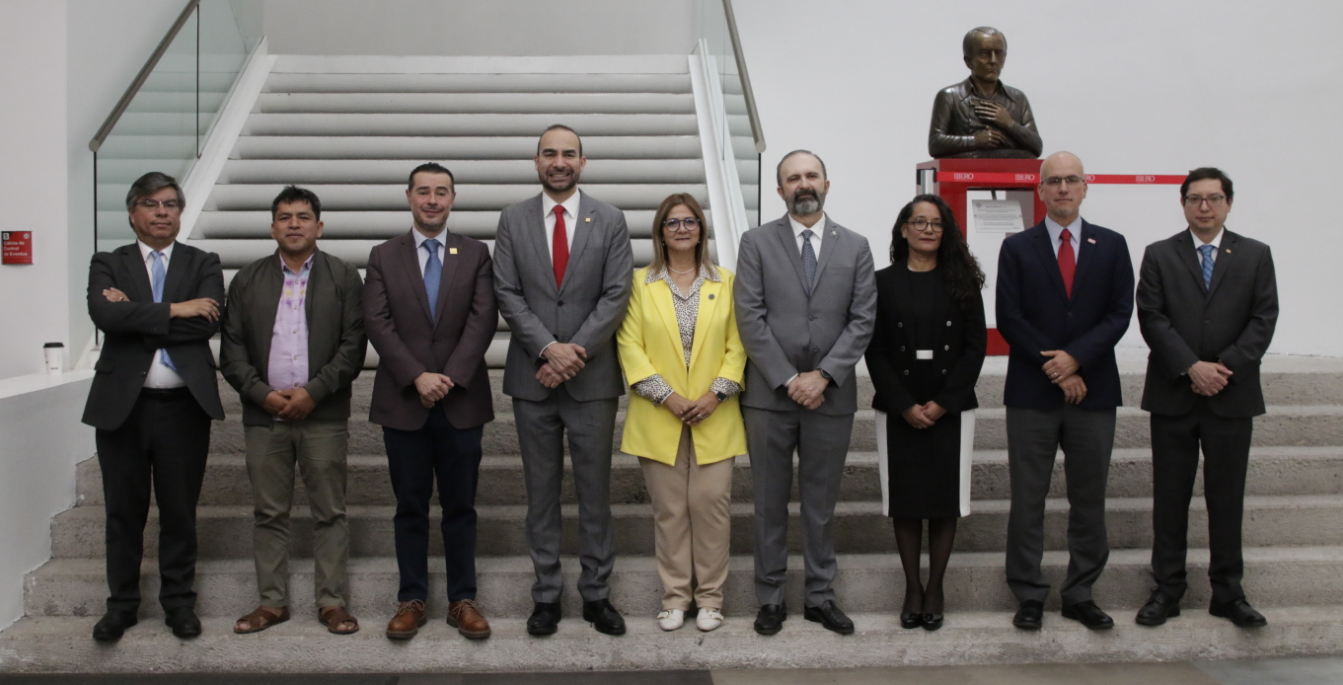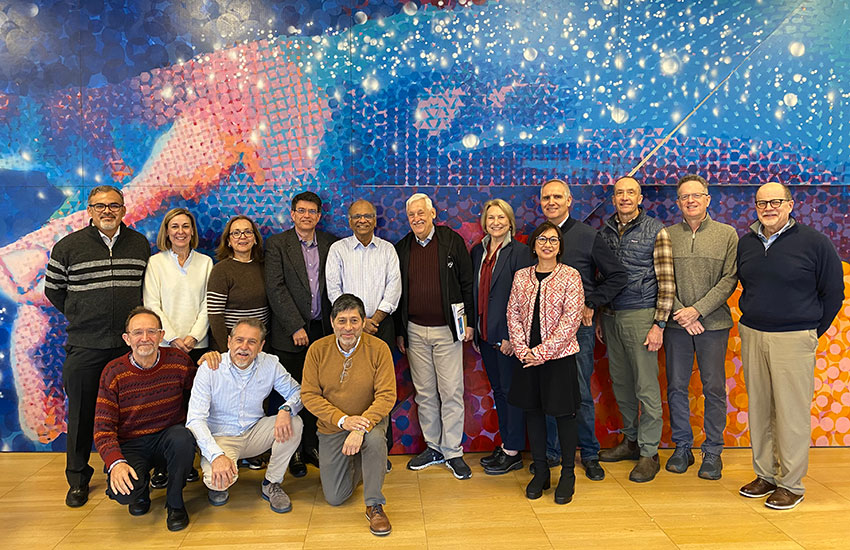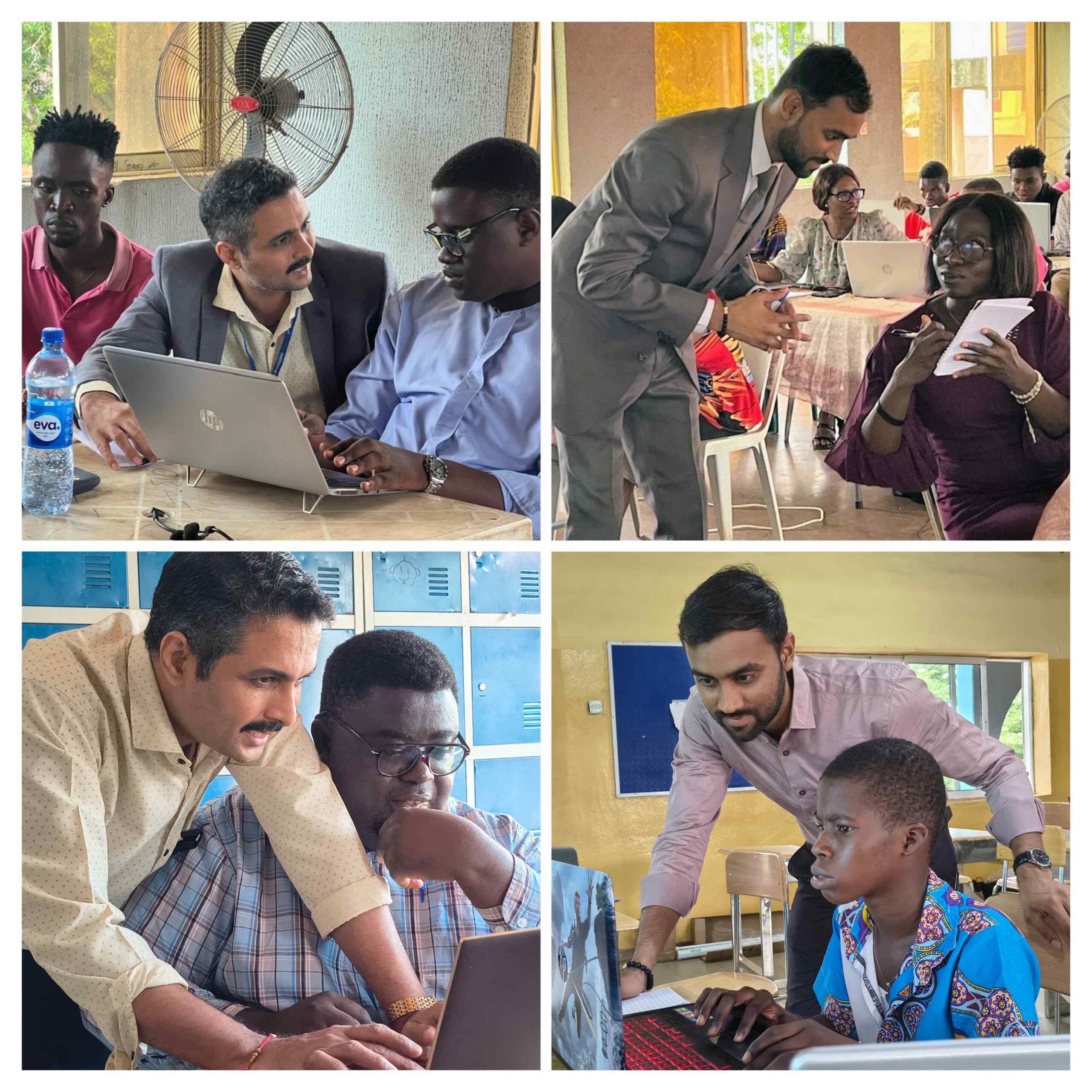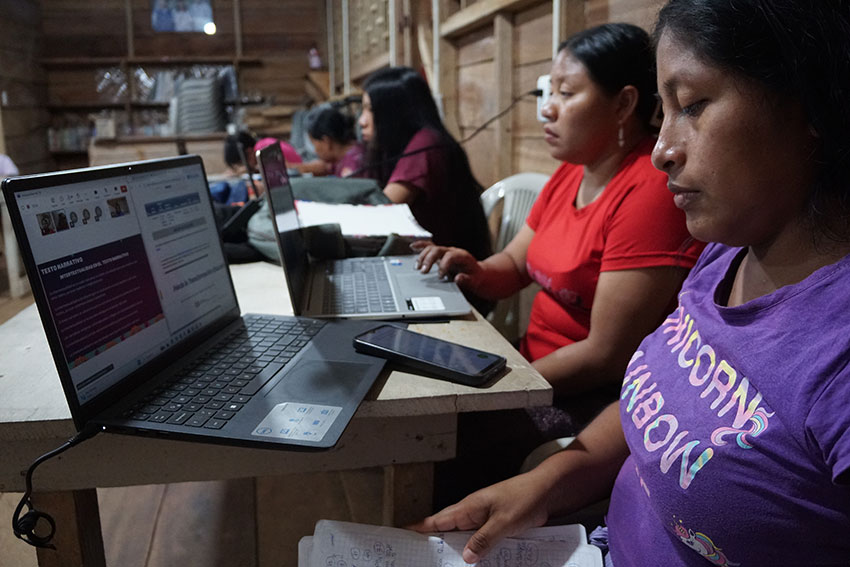COMMITMENT TO PEACE AND JUSTICE: SUJ INITIATIVES FOR A RECONCILED SOCIETY

*English version below.
El pasado 24 de abril, el Laboratorio para la Paz con Reconciliación (ReconciLAB), una iniciativa del Sistema Universitario Jesuita (SUJ), presentó el libro y la agenda titulados "Alternativas hacia la paz con reconciliación". Estos documentos representan el fruto de un esfuerzo colectivo dedicado a enfrentar la crisis de violencia y derechos humanos en México. El proyecto surgió tras el trágico asesinato de los sacerdotes jesuitas Javier Campos S.J. y Joaquín Mora S.J.,así comodel guía Pedro Palma, en junio de 2022, motivando la creación de un espacio para el análisis y la formulación de políticas públicas enfocadas en la violencia, la justicia y la construcción de la paz.
El libro reúne el análisis de 73 colaboradores (43 mujeres y 30 hombres) de las ocho universidades del Sistema Universitario Jesuita (SUJ), que incluyen la Universidad Iberoamericana Ciudad de México, Tijuana, Torreón, León y Puebla,así comoInstituto Tecnológico y de Estudios Superiores de Occidente (ITESO),elTecnológico Universitario del Valle de Chalco (TUVCH)yelInstituto Superior InterculturalAyuuk (ISIA). Estas instituciones colaboraron en conjunto con Ediciones Ibero para el diseño editorial.
La "Agenda Balance", derivada del libro, sintetiza las propuestas y recomendaciones que buscan abordar de manera integral las problemáticas de violencia y desigualdad en México, entre ellas:
Pobreza y Desigualdad:Sugiere la implementación de programas sociales que no sólo atiendan las necesidades básicas, sino que también fomenten el desarrollo económico local y el emprendimiento en comunidades vulnerables. Propone políticas que incrementen el acceso a la educación de calidad y a servicios de salud, como medidas fundamentales para combatir la pobreza estructural.
Gobernanza y Seguridad Ciudadana: Recomienda la reforma de las instituciones de seguridad y justicia para hacerlas más transparentes, eficaces y cercanas a la ciudadanía. Enfatiza la importancia de la participación ciudadana en la vigilancia y evaluación de estas instituciones.
Justicia y Atención a Víctimas:Resaltala necesidad de establecer mecanismos efectivos para la protección y atención integral a las víctimas de la violencia. Propone la creación de centros especializados en la atención psicológica y legal que sean accesibles y eficientes.
Memoria y Educación para la Paz:Propone la implementación de programas educativos que fomenten la memoria histórica y la cultura de paz. Propone la integración de currículos que aborden la historia de la violencia en México desde una perspectiva crítica y constructiva, y que promuevan valores de reconciliación y coexistencia pacífica.
Políticas Públicas Integrales: Plantea la necesidad de una coordinación efectiva entre los diferentes niveles de gobierno y la sociedad civil para la implementación de políticas públicas que sean integrales y sostenibles. Se enfatiza la importancia de que estas políticas sean diseñadas e implementadas con un enfoque de derechos humanos y equidad de género.
La "Agenda Balance" se presenta como un instrumento clave para guiar la acción gubernamental y la colaboración intersectorial,al tiempo que promueve un enfoque holístico en la construcción de paz y el fortalecimiento de la cohesión social en México.En este sentido, aborda los síntomas de la crisis actual ybusca atacar las causas raíz de los conflictos y desigualdades que enfrenta el país.
La presentación del libro y la“Agenda Balance” se llevó a cabo en la Universidad Iberoamericana Ciudad de México, y contó con la participación de autoridades del SUJ, entre ellas, la Mtra. LorenaGiacomán, el Dr. Luis Arriaga, S.J., el Dr. Alexander PaulZatyrka, S.J., el Mtro. Mario Ernesto Patrón, el Mtro. Luis Alfonso González,S.J., el Mtro. Juan Luis Hernández, el Mtro. FlorentinoBadial, la Dra. María Adriana Jiménez y el Mtro. Edilberto Cardoso.
Proyectos Clave del SUJ para la Construcción de Paz
Fieles a nuestra misión de promover la paz y la justicia de manera continua, las universidades del SUJ estamos desarrollando tres proyectos clave, organizados bajo la dirección del Laboratorio para la Paz con Reconciliación (ReconciLAB), cada uno con líneas de incidencia específicas:
Proyecto de Incidencia: Este proyecto, ya mencionado, no sólo incluye la publicación del libro y la“Agenda Balance”, sino también eventos de presentación y publicaciones temáticas que fomentan el debate y la concienciación sobre la construcción de paz. Funciona como una herramienta influyente para moldear las políticas públicas hacia la reconciliación.
Proyecto Formativo en Construcción de Paz: Liderado por el ITESO, este proyecto se centra en la capacitación de colaboradores del SUJ en procesos de pacificación y reconciliación. Actualmente, se está pilotando el curso "Un camino hacia la construcción de Paz" y participamos en el grupo de trabajoTaskForceonPeace &Reconciliationde la InternationalAssociationofJesuitUniversities (IAJU), lo que es fundamental para fomentar una cultura de paz en nuestra comunidad.
Proyecto de Investigación:La Universidad como Espacio de Construcción de Paz: Este proyecto se dedica a desarrollar conocimiento y propuestas desde los espacios universitarios, participando en la Convocatoria de Investigación Científica, Humanística y Tecnológica del SUJ. En colaboración con el Instituto de Investigaciones para el Desarrollo de la Educación (INIDE), se está realizando un diagnóstico de las necesidades y potencialidades educativas del SUJ para fomentar la construcción de paz.
En la tradición ignaciana, continuamos promoviendo la justicia social y la paz, comprometidos con nuestra misión de acompañar a las comunidades en su camino hacia la reconciliación y la esperanza.
[English version]
On April 24th, the Laboratory for Peace with Reconciliation (ReconciLAB), an initiative of the Jesuit University System (SUJ), presented the book and agenda titled "Alternativas hacia la paz con reconciliación". These documents represent the fruit of a collective effort dedicated to addressing the crisis of violence and human rights in Mexico. The project emerged following the tragic murder of Jesuit priests Javier Campos S.J. and Joaquín Mora S.J., as well as the guide Pedro Palma, in June 2022. The murder motivated the creation of a space for analysis and formulation of public policies focused on violence, justice, and peacebuilding.
The book brings together the analysis of 73 contributors (43 women and 30 men) from the eight universities of the Jesuit University System (SUJ), which include Universidad Iberoamericana Ciudad de México, Tijuana, Torreón, León, and Puebla, as well as Instituto Tecnológico y de Estudios Superiores de Occidente (ITESO),Tecnológico Universitario del Valle de Chalco (TUVCH) and Instituto Superior Intercultural Ayuuk (ISIA). These institutions collaborated with Ediciones Ibero for the editorial design.
The "Agenda Balance" derived from the book, synthesizes proposals and recommendations aimed at comprehensively addressing the issues of violence and inequality in Mexico, including:
Poverty and Inequality: It suggests the implementation of social programs that address basic needs and promote local economic development and entrepreneurship in vulnerable communities. It proposes policiesto increase access to quality education and health services as fundamental measures to combat structural poverty.
Governance and Citizen Security: It recommends the reform of security and justice institutions to make them more transparent, effective, and closer to citizens. Emphasizes the importance of citizen participation in the oversight and evaluation of these institutions.
Justice and Victim Assistance: It points out the need toestablish effective mechanisms for the protection and comprehensive assistance of victims of violence. It suggests the creation of specialized centers for psychological and legal assistance that are accessible and efficient.
Memory and Education for Peace: It suggests the implementation of educational programs that promote historical memory and a culture of peace. It suggests integrating curricula that address the history of violence in Mexico from a critical and constructive perspective, promoting values of reconciliation and peaceful coexistence.
Comprehensive Public Policies: It advocates for the need for effective coordination between different levels of government and civil society for the implementation of comprehensive and sustainable public policies. It emphasizes the importance of designing and implementing these policies with a human rights and gender equity approach.
The "Agenda Balance" is presented as a key tool to guide governmental action and intersectoral collaboration, while promotinga holistic approach to peacebuilding and strengthening social cohesion in Mexico. In this sense, it addresses the symptoms of the current crisis and seeks to tackle the root causes of the conflicts and inequalities facing the country.
The presentation of the book and the “Agenda Balance” took place at the Universidad Iberoamericana Ciudad de México and was attended by SUJ authorities, including Mtra. Lorena Giacomán, Dr. Luis Arriaga, S.J., Dr. Alexander Paul Zatyrka, S.J.,Mtro. Mario Ernesto Patrón,Mtro. Luis Alfonso González, S.J.,Mtro. Juan Luis Hernández, Mtro. Florentino Badial, Dra. María Adriana Jiménez, and Mtro. Edilberto Cardoso.
Key SUJ projects for peacebuilding
True to our mission of promoting peace and justice continuously, SUJ universities are developing three key projects, organized under the leadership of the Laboratory for Peace with Reconciliation (ReconciLAB), each with specific advocacy lines:
Advocacy Project: This project, already mentioned, not only includes the publication of the book and the “Agenda Balance” but also presentation events and thematic publications that foster debate and awareness about peacebuilding. It functions as an influential tool to shape public policies towards reconciliation.
Training Project in Peacebuilding: Led by ITESO, this project focuses on training SUJ collaborators in peacebuilding and reconciliation processes. Currently, the course "A Path towards Peacebuilding" is being piloted, and weparticipate in the Task Force on Peace & Reconciliation working group of the International Association of Jesuit Universities (IAJU), which is crucial for fostering a culture of peace in our community.
Research Project: The University as a Space for Peacebuilding: This project is dedicated to developing knowledge and proposals from university spaces,participating in the Scientific, Humanistic, and Technological Research Call of the SUJ. In collaboration with the Institute of Research for the Development of Education (INIDE), a diagnosis of the educational needs and potentialities of the SUJ is being carried out to promote peacebuilding.
In the Ignatian tradition, we continue to promote social justice and peace, committed to our mission of accompanying communities on their path towards reconciliation and hope.






